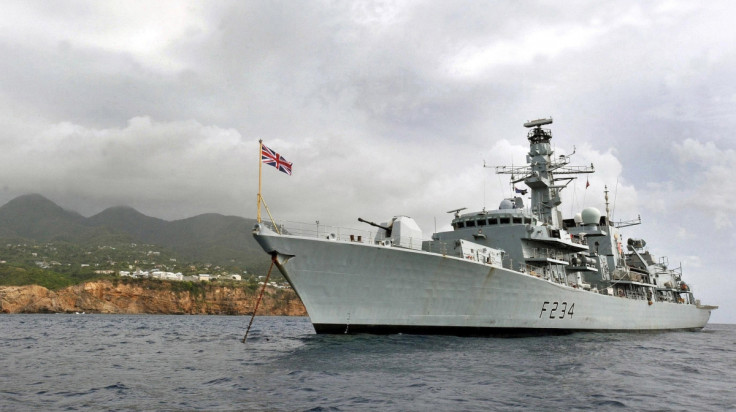Royal Navy to deploy 6 more warships in Baltic doubling its naval commitment to Nato

The Royal Navy is to send six additional warships and hundreds of naval personnel to the Baltic in a show of force against Russia. Britain is doubling its naval commitment to Nato as a counter-measure against Moscow's military build-up in the region.
British troops will also be stationed on the ground in six Baltic states, closer to the Russian border regions. The exact number of personnel is to be decided shortly as Nato defence ministers get ready for the Brussels meet, which will be dominated by Moscow's actions.
Defence Secretary Michael Fallon will say Britain's latest commitment is aimed at sending "a strong message to our enemies" during the Nato meeting. He will add that the UK is "ready to respond to any threat, and defend our allies". The British deployment, relatively modest compared to other nations, will consist of Type 23 Frigate, HMS Iron Duke, a yet-unassigned destroyer and three minesweepers.
The eastern European nations — Poland, Bulgaria, Romania, Latvia, Lithuania and Estonia — have long been asking for positioning ground troops from the Western world against the backdrop of Russia's expansionism in the region. The Nato hopes the latest deployment will act as a deterrence to Russia. The UK already regularly flies planes in the Baltic nations and British troops routinely take part in military drills.
Up to 6,000 troops from Nato members the UK, the US, Germany and France are to be drafted in to be stationed in Eastern Europe on a rotational basis. The rotational arrangement is a convoluted process as Nato has an existing arrangement with Russia that the bloc would not make any permanent deployment in eastern Europe.
Fallon is also due to say: "2016 will see a particular focus on the Baltic region with our ships sent there as part of the Maritime Group, the Mine Counter Measure Group and the Baltops exercise."
The US has recently announced Washington is quadrupling its military spending for its forces in Europe to $3.4bn (£2.3bn). Nearly half of the budget would be spent on "heavy brigade" armour and artillery.
Nato's Secretary-General Jens Stoltenberg said: "I expect ministers to agree to enhance our forward presence in the eastern part of our Alliance. This will boost our collective defence and at the same time send a powerful signal to deter any aggression or intimidation."
© Copyright IBTimes 2024. All rights reserved.






